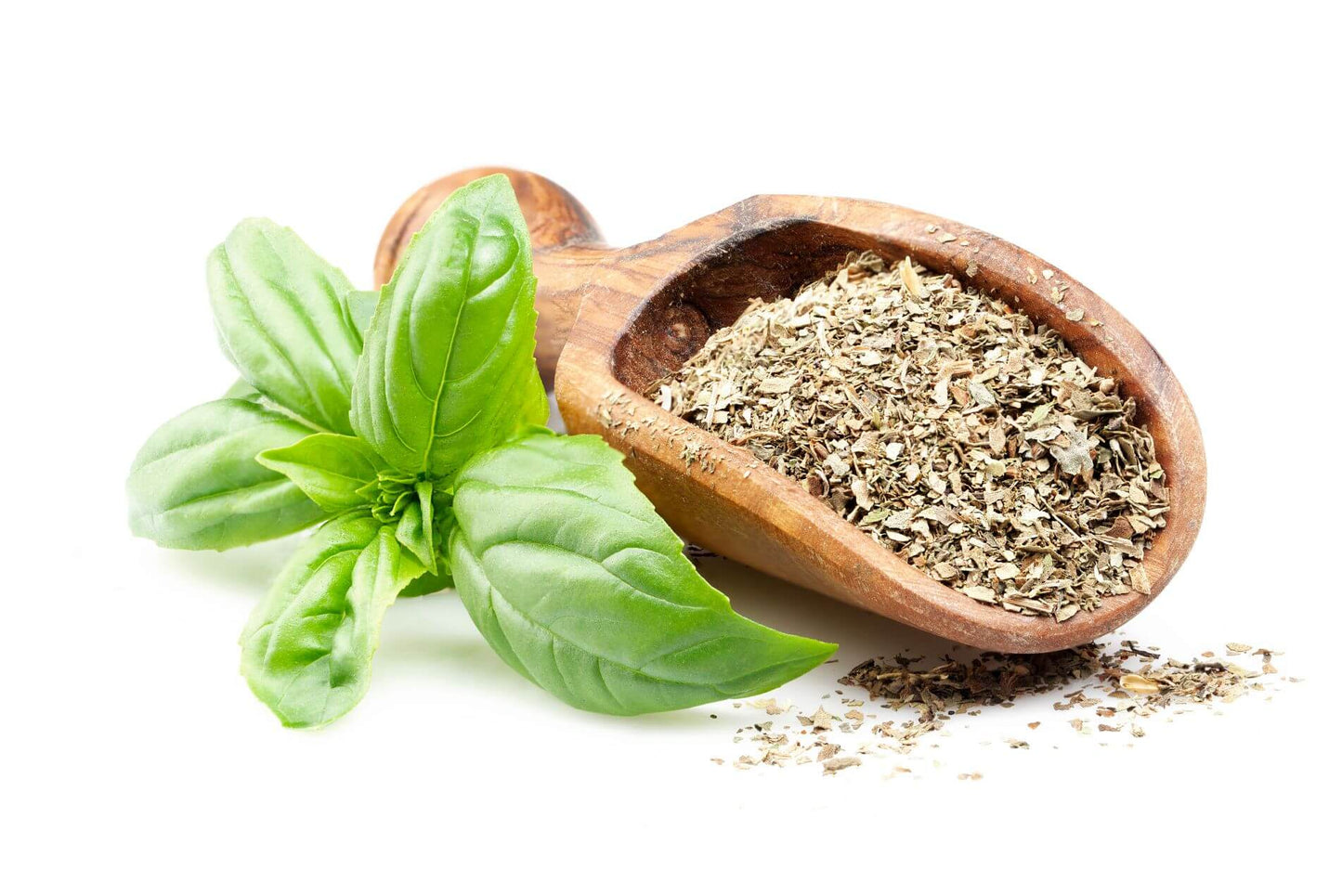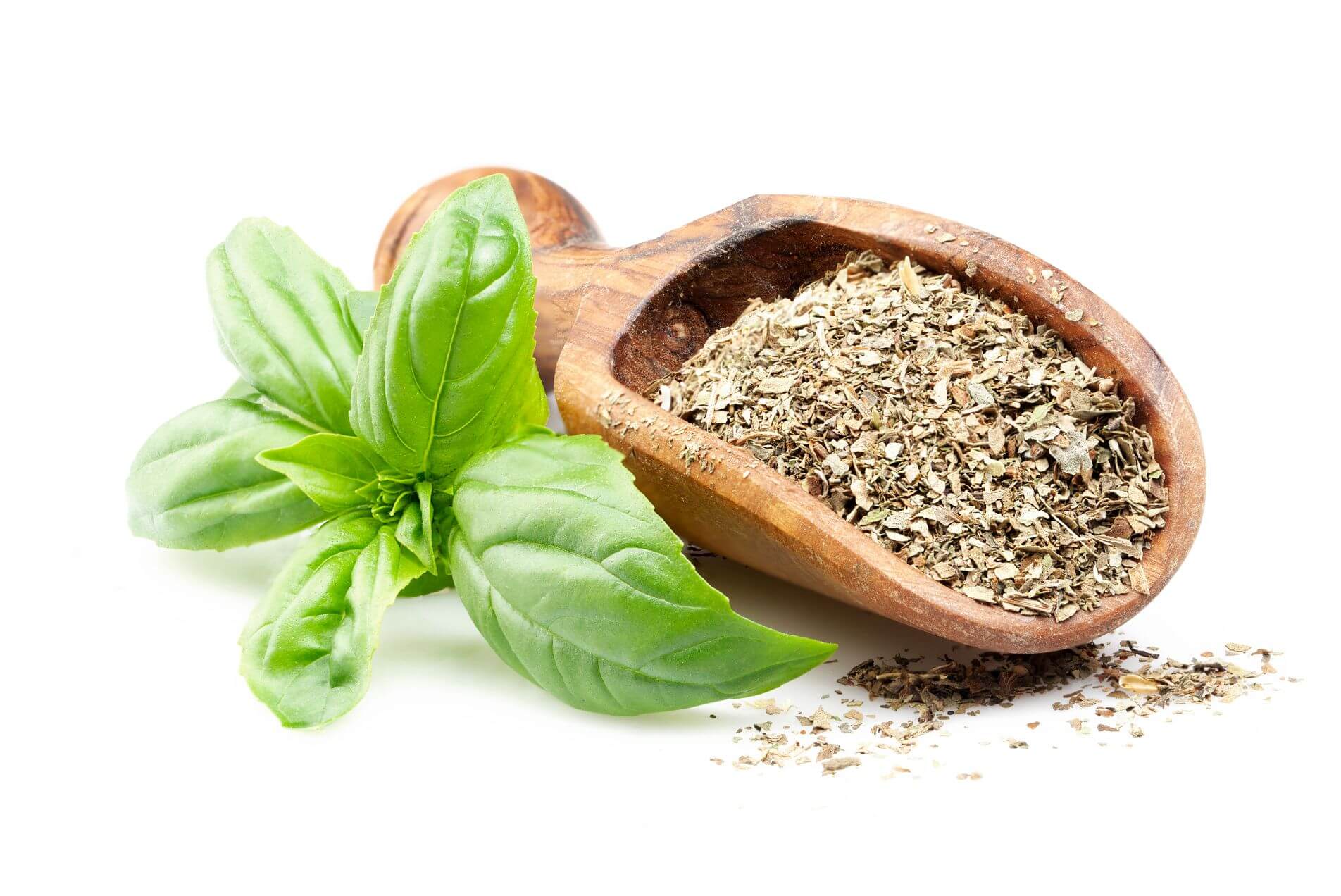Basil
Basil
Couldn't load pickup availability
Basil, scientifically known as Ocimum basilicum, is a fragrant and versatile herb that has been cherished for centuries in culinary traditions, herbal medicine, and even religious rituals. It is native to the tropical regions of Asia and is now cultivated worldwide. Here are some key aspects:
Varieties: It comes in various varieties, each with its own unique flavor profile. Sweet basil is the most common type and is known for its fresh, sweet, and slightly peppery flavor. Other popular varieties include Thai basil, which has a distinct anise-like flavor, and Genovese basil, often used in Italian dishes and prized for its rich, sweet aroma.
Culinary Uses: It is a cornerstone herb in Mediterranean, Thai, and Italian cuisines. It is frequently used to add depth and aroma to a wide range of dishes, including pasta sauces, pesto, salads, soups, and even desserts. Basil leaves are best when added just before serving to preserve their vibrant color and flavor.
Pesto: Perhaps the most famous use is in pesto sauce, a classic Italian condiment made by blending basil leaves, pine nuts, garlic, Parmesan cheese, and olive oil. Pesto adds a burst of fresh basil flavor to pasta, sandwiches, and more.
Medicinal Uses: It has a history of medicinal use in traditional herbal medicine. It is believed to have antioxidant and anti-inflammatory properties and has been used to alleviate symptoms of digestive issues and respiratory conditions. Basil essential oil is also used in aromatherapy for its calming and stress-relieving effects.
Religious and Cultural Significance: It holds special significance in various cultures and religions. In Hinduism, it is considered a sacred plant and is often used in religious ceremonies. In Italian folklore, it is associated with love and is considered a symbol of good luck.
Easy to Grow: Basil is a popular herb for home gardening because it’s relatively easy to grow in pots or gardens. It thrives in warm, sunny conditions and can be cultivated indoors or outdoors.
Variety of Basil Dishes: It can be used in an array of dishes, from caprese salads to Thai green curry. It’s also a delightful garnish for pizza, bruschetta, and cocktails like the classic basil mojito.
Nutritional Value: It is a good source of vitamins and minerals, including vitamin K, vitamin A, vitamin C, calcium, and potassium. It is also low in calories, making it a healthy addition to a variety of dishes.
In conclusion, basil is a cherished herb that adds an aromatic and flavorful dimension to countless culinary creations. Its culinary versatility, rich history, and potential health benefits continue to make it a beloved herb in kitchens around the world.
Share


